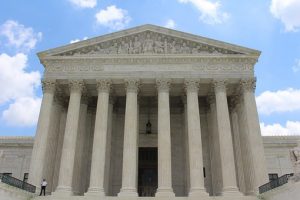New Jersey Appeals Court Examines the Effect of the Ending Forced Arbitration of Sexual Assault and Sexual Harassment Act on Litigation of Related Non-Sexual Harassment Claims
The Ending Forced Arbitration of Sexual Assault and Sexual Harassment Act
The New Jersey Arbitration Act and Federal Arbitration Act generally require enforcement of agreements to arbitrate disputes. This extends to the enforcement of arbitration agreements in employment contracts.
However, in response to the #MeToo Movement, Congress passed the Ending Forced Arbitration of Sexual Assault and Sexual Harassment Act of 2021. The EFAA provided:
 New Jersey Lawyers Blog
New Jersey Lawyers Blog



 additional items to be included. A written change order to the original signed contract was drafted, but the change order was never signed. In January 2020 the home passed final inspections, and EMC’s owner, Edward Morgan, advised Dattolo that he could not continue working on the project. Dattolo refused to pay “one additional cent,” and complained that there were numerous construction defects which would cost him thousands of dollars to remediate.
additional items to be included. A written change order to the original signed contract was drafted, but the change order was never signed. In January 2020 the home passed final inspections, and EMC’s owner, Edward Morgan, advised Dattolo that he could not continue working on the project. Dattolo refused to pay “one additional cent,” and complained that there were numerous construction defects which would cost him thousands of dollars to remediate.
 Tax”. Pursuant to the prior legislation, adopted in 2004, residential properties and certain commercial properties which sold for over $1 million in New Jersey were subject to a “Mansion Tax” which required the buyers of the real estate to pay 1 percent of the purchase price to the State of New Jersey.
Tax”. Pursuant to the prior legislation, adopted in 2004, residential properties and certain commercial properties which sold for over $1 million in New Jersey were subject to a “Mansion Tax” which required the buyers of the real estate to pay 1 percent of the purchase price to the State of New Jersey. other party’s customers or clients after the expiration of the contract.
other party’s customers or clients after the expiration of the contract. government. She worked closely with the Department’s supervisors. Clients were sent by Department to the Center. The Center would assign clients to Bodner. She assessed clients to see if they had substance abuse issues and if so to recommend the appropriate level of care, and report them to the case workers. She would conference cases with Department case workers.
government. She worked closely with the Department’s supervisors. Clients were sent by Department to the Center. The Center would assign clients to Bodner. She assessed clients to see if they had substance abuse issues and if so to recommend the appropriate level of care, and report them to the case workers. She would conference cases with Department case workers.
 they must be paid. The Supreme Court of New Jersey considered whether and under what circumstances “commissions” are considered “wages” protected by the Wage Payment Law.
they must be paid. The Supreme Court of New Jersey considered whether and under what circumstances “commissions” are considered “wages” protected by the Wage Payment Law.